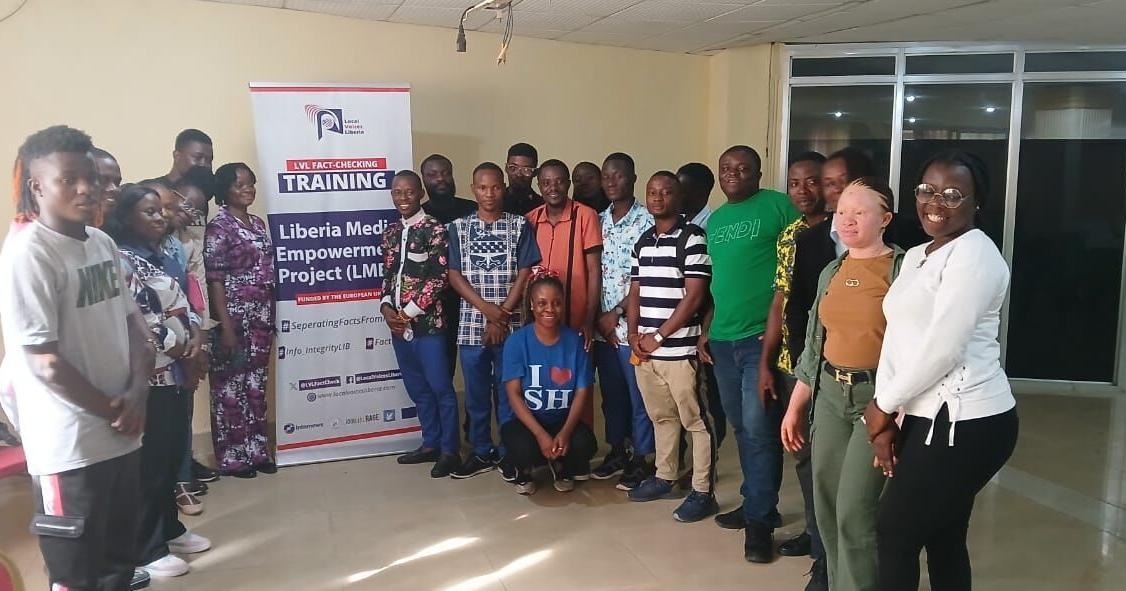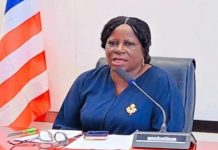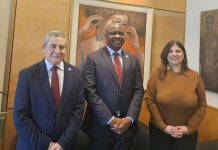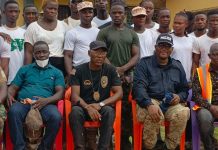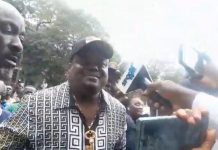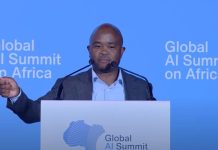Africa-Press – Liberia. Twenty-four Liberian mainstream journalists recently participated in a two-day intensive fact-checking and verification training designed to enhance their skills and improve the accuracy of their reporting. The program, organized by Local Voices Liberia (LVL) in collaboration with Internews and funded by the European Union (EU), took place at the Rose Garden Plaza, Crown Hill, Monrovia.
Alpha Daffae Senkpeni, Local Voices’ lead, emphasized the growing threat of disinformation and misinformation in Liberia.
“Disinformation distorts reality, often leading to serious consequences,” Senkpeni said during the opening of the workshop. “Journalists, as conveyors of news, must be equipped with the tools and knowledge to counter these trends. By strengthening their fact-checking skills, we ensure that they can report accurately and professionally.”
He expressed hope that the training would significantly improve the quality of journalism in Liberia, noting that the participants’ upcoming reports will likely reflect their newly acquired skills.
“As journalists, it’s crucial to understand the tricks and trends of disinformation, enabling them to better navigate the evolving media landscape,” the Local Voices boss said.
Samuka V. Konneh, Internews’ Liberia Media Empowerment Project (LMEP) Coordinator , also spoke at the event. He highlighted that the three-year project, funded by the EU, aims to build the capacity of journalists. “Journalism is an ever-evolving field. It’s not static like infrastructure. To stay relevant, journalists must continuously learn, adapt, and unlearn outdated practices. We’re delighted to see so many journalists taking time away from their newsrooms to improve their craft,” he said.
Konneh stressed that the impact of media development projects is often difficult to measure immediately but can significantly contribute to strengthening democracy.
He urged the participants to apply what they had learned, warning that the effort invested in training would be wasted if not put into practice.
Under a previous project, Internews trained 175 Liberian journalists. With this initiative, they hope to reach up to 60. What sets this project apart is its inclusion of academic institutions, aiming to introduce fact-checking to student journalists before they enter the field.
“Fact-checking has become an indispensable part of journalism. We are collaborating with the University of Liberia, the Methodist universities, and the Peter Quaqua School of Journalism to ensure that journalism students are equipped with these essential skills,” said Konneh.
Participants shared their experiences and the impact the training had on them. Feeme M. Wantee, a reporter at Women’s TV Liberia, described her experience as transformative. “This training has been excellent. I’ve learned things I never knew about journalism, particularly the importance of data journalism in fact-checking.”
Deborah Mace, a reporter at Blaze Radio, expressed her gratitude for the opportunity. “I was initially unfamiliar with fact-checking, but this training has opened my eyes. I’m excited to apply these skills in my work.”
The training met the expectations of many attendees, who praised the facilitators for their knowledge and engaging presentations. As Liberia continues to navigate the challenges of disinformation, programs like this are crucial to ensuring that the public receives accurate, reliable information.
For More News And Analysis About Liberia Follow Africa-Press

